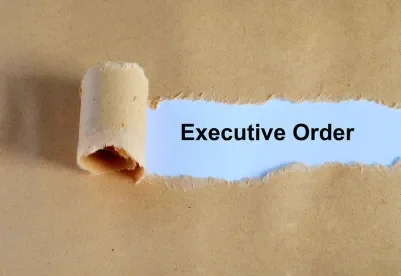Most of the reaction to Donald Trump’s sweeping new Executive Order, declaring a national emergency to combat “the ability of foreign adversaries to create and exploit vulnerabilities in information and communications technology or services” has been focused on only one company (Huawei) and only one country (China). The breathtaking reach of the Order, however, means that many more fintech contracts may now be now at risk.
The Federal Government’s new strategy for protecting critical infrastructure and winning the 5G race may make some of your company’s vendor contracts voidable or suspend them indefinitely. Your company may be stuck having paid for products or services it may never receive. Executive Orders like this one may excuse your vendor’s failure to deliver your software as a service or otherwise, and if nothing in the agreement addresses your remedies while the contract is suspended, then your company could be up the creek .
Many contracts contain a clause to toll or excuse the obligations of the affected party under the contract if an “Act of God” or “Force Majeure” occurs. Should lightning strike, such a clause could help your company if it is written carefully.
While you might think that any action taken by Secretary Ross under this new Order would necessarily fall under your standard force majeure clause, not so fast. These clauses are often tucked innocuously away in the boilerplate “Miscellaneous” section of contracts. They are seldom strenuously negotiated and differ widely in scope. Some do not define force majeure at all. Others defer to force majeure as it is defined by the law applicable to the contract. Some even specifically exclude “the regulatory acts of governmental authorities” from the definition of force majeure. Many do not specifically call out national emergencies as excusing performance, relying instead on broader language like “embargoes and other similar unusual governmental action.”
Issued under the International Emergency Economic Powers Act (IEPPA), the Order empowers the Secretary of Commerce to block just about any deal that involves information or communications technology or services “designed, developed, manufactured, or supplied, by persons owned by, controlled by, or subject to the jurisdiction or direction of a foreign adversary.” And the entities on Commerce’s Bureau of Industry and Security’s “Entity List”, individuals and entities that are subject to specific license requirements for the export, re-export and/or transfer of specified items, are not just the usual suspects (e.g., entities located in China, Iran); they include entities located in countries like Canada, Germany, Finland and France.
IEPPA allows the President to, among other things:
. . . investigate, block during the pendency of an investigation, regulate, direct and compel, nullify, void, prevent or prohibit, any acquisition, holding, withholding, use, transfer, withdrawal, transportation, importation or exportation of, or dealing in, or exercising any right, power, or privilege with respect to, or transactions involving, any property in which any foreign country or a national thereof has any interest by any person, or with respect to any property, subject to the jurisdiction of the United States
Against the backdrop of escalating trade wars and cyberwarfare, an ounce of prevention is worth a pound of cure. We recommend that all clients review and update their fintech contracts to address the risks posed by this Order.
Dominic Panakal also contributed to this article.






 />i
/>i

